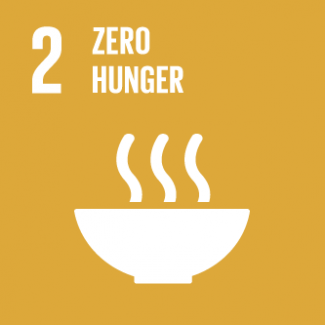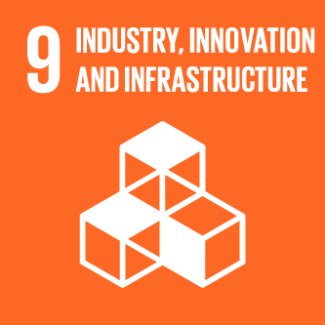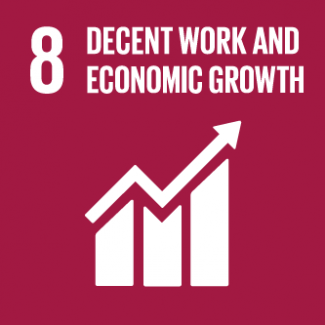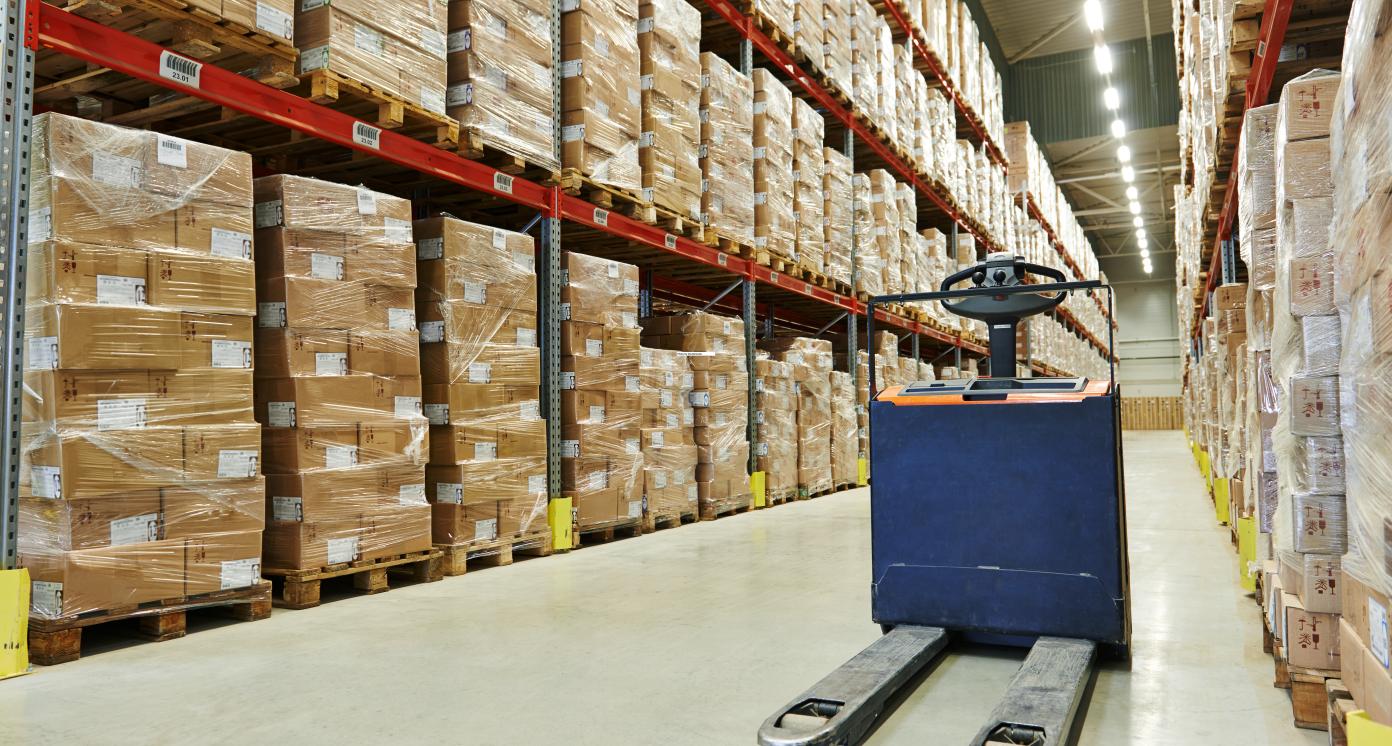Packaging Facilities in Free Trade Zones



Business Model Description
Manufacture and provide food and agricultural packaging products in dedicated cluster(s) of Djibouti's free trade zones to deliver solutions for regional food and agriculture value chain.
Expected Impact
Enhance food value chains and increase food security in Djibouti, and advance regional integration in the Horn of Africa.
How is this information gathered?
Investment opportunities with potential to contribute to sustainable development are based on country-level SDG Investor Maps.
Disclaimer
UNDP, the Private Finance for the SDGs, and their affiliates (collectively “UNDP”) do not seek or solicit investment for programmes, projects, or opportunities described on this site (collectively “Programmes”) or any other Programmes, and nothing on this page should constitute a solicitation for investment. The actors listed on this site are not partners of UNDP, and their inclusion should not be construed as an endorsement or recommendation by UNDP for any relationship or investment.
The descriptions on this page are provided for informational purposes only. Only companies and enterprises that appear under the case study tab have been validated and vetted through UNDP programmes such as the Growth Stage Impact Ventures (GSIV), Business Call to Action (BCtA), or through other UN agencies. Even then, under no circumstances should their appearance on this website be construed as an endorsement for any relationship or investment. UNDP assumes no liability for investment losses directly or indirectly resulting from recommendations made, implied, or inferred by its research. Likewise, UNDP assumes no claim to investment gains directly or indirectly resulting from trading profits, investment management, or advisory fees obtained by following investment recommendations made, implied, or inferred by its research.
Investment involves risk, and all investments should be made with the supervision of a professional investment manager or advisor. The materials on the website are not an offer to sell or a solicitation of an offer to buy any investment, security, or commodity, nor shall any security be offered or sold to any person, in any jurisdiction in which such offer would be unlawful under the securities laws of such jurisdiction.
Country & Regions
- Djibouti: Djibouti (City)
Sector Classification
Services
Development need
Djibouti's economy is dominated by the services sector generating 70% of growth (5). Transport services, especially port activities, are the main growth source and employ most of the workforce (1). As services are becoming more tradable, expanding and diversifying international service exports provide significant opportunities for developing least developed countries (2).
Policy priority
The authorities are continuing the country's development with the goal of setting up a regional hub for trade, logistical and financial services (3). One such attempt is the inauguration of the Djibouti International Free Trade Zone (DIFTZ) in 2018, which is set to be the largest free trade zone in Africa once complete (9).
Gender inequalities and marginalization issues
Consumer services are key to promoting inclusive growth. They provide jobs for the poor, form the backbone of the economy, and offer key opportunities for growth through trade in Djibouti (6).
Investment opportunities introduction
Strong export growth especially in transport and logistics services is expected to improve the current account balance to 2.6% of GDP by 2024. An output growth of 7-8% is expected given the country's strategic location and potential to serve the East African region, especially with logistics and transport-related services (4).
Key bottlenecks introduction
Value added by the services sector, which usually generates 70% of Djibouti's growth, increased only 2% in 2020 compared with 8.2% in 2019 due to the COVID-19 pandemic (5). The absence of efficient services, such as telecom, internet, finance, accounting, legal services and transportation and logistics, hinders overall economic growth and business operations (2).
Consumer Services
Development need
Djibouti's economy is heavily dependent on imports due to the underdeveloped industrial and agricultural sectors, and a large number of companies operate in import and trade activities (8). Future development of the country requires its transformation into a hub for trade, logistics and related services (3).
Policy priority
Djibouti seeks to position itself at the heart of the African trade. The Djibouti International Free Trade Zone (DIFTZ) is set to be the largest free trade zone in Africa once complete (9). Among the priorities of the National Strategy for Social Protection is the promotion of sustainable growth and diversifying the economy through key sectors, including trade (10).
Gender inequalities and marginalization issues
Fewer opportunities for women to participate in trade-related jobs and high levels of unemployment can have a serious impact on the economy, leading to lower consumption, higher poverty and declining well-being of women and their families (7).
Investment opportunities introduction
The Horn of Africa Initiative has launched the Multi-Donor Trust Fund (MDTF) with a capital of Euro 30 million, which includes support for More Trade, More Growth, More Jobs focusing on trade and economic integration covering trade facilitation, regional value chains, and improvements in the investment climate (11).
Key bottlenecks introduction
Prevalence of illicit and informal trade especially in the borderland regions, cross-country clan and ethnic affiliations hindering activity, inadequate public and private investment to support trade are challenges within the consumer services subsector (12).
Professional and Commercial Services
Pipeline Opportunity
Packaging Facilities in Free Trade Zones
Manufacture and provide food and agricultural packaging products in dedicated cluster(s) of Djibouti's free trade zones to deliver solutions for regional food and agriculture value chain.
Business Case
Market Size and Environment
USD 100 million - USD 1 billion
Djibouti imports 90% of its food commodities (17). In 2019, import values of food stuffs and vegetables products were USD 255 million and USD 228 million, respectively (18). The proposed packaging facilities can take advantage of such opportunities to foster local food and agricultural production.
Indicative Return
15% - 20%
A feasibility study for the integrated agro-industrial park in Ethiopia's Western Tigray region, which includes packaging facilities, estimates an IRR of 16% (19).
Investment Timeframe
Short Term (0–5 years)
A feasibility study for the integrated agro-industrial park in Ethiopia's Western Tigray region, which includes packaging facilities, predicts a breakeven point after approximately three years (19).
Ticket Size
USD 1 million - USD 10 million
Market Risks & Scale Obstacles
Business - Business Model Unproven
Capital - CapEx Intensive
Impact Case
Sustainable Development Need
Regional priority agricultural value chains are challenged by the desert locust upsurge and droughts. They are necessary to address rural poverty and dietary diversity of the population's poor as well as advance economic growth in Djibouti (21).
Djibouti is dependent on imports to meet its food needs due to scarcity of arable land, which stands at only 0.04% of the country's total area, and average annual rainfall of only 130 millimeters (22).
Gender & Marginalisation
Women in Djibouti are often responsible for tasks in the production processes that are critical to productivity, such as picking, grading and packing (32). However, women's employment in industry, as percentage of female employment, has considerably declined since the 1990s and was 6.8% in 2019 (23).
Expected Development Outcome
Regional integration along the food and agricultural value chains through the development of key infrastructure, including packaging facilities, improves the Horn of Africa's resilience to droughts and adverse climate conditions caused by climate change, benefit the poorest segment of the population with improved food security, provide pastoralists with access to markets, and facilitate industrial development (21).
Development of packaging facilities increases the share of industry in Djibouti's GDP and contributes to economic growth and employment.
Gender & Marginalisation
Establishing packaging facilities contributes to employment opportunities for women, across different segments of the value chain, as work traditionally done by women includes key tasks in the production process. It is estimated that women comprise 70-80% of the global workforce dealing with harvest and post-harvest tasks, such as picking, grading, chopping, mixing, packing, labeling and barcoding (32).
Primary SDGs addressed

2.1.1 Prevalence of undernourishment
31% of children between 5-59 months suffer from chronic malnutrition in Djibouti. Food insecurity is characterized by the country's dependency on food imports and high portion of household budget (77%) spent on food by its poorest segment of the population (17).
Djibouti's Vision 2035 promotes food security in the national development strategy (25). The World Food Programme (WFP) Country Strategic Plan (2020-2024) has allocated USD 34.4 million (July, 2021) and estimated a total funding requirement of USD 83.3 million (17).

9.2.1 Manufacturing value added as a proportion of GDP and per capita
Manufacturing, value added as percentage of GDP is among the lowest in the region and was 2.7% in 2019 (24).
Djibouti's manufacturing industry target is to increase the sector's share in GDP from 2.7% in 2012 to 5.8% by 2022, and to 7% by 2035 (25).
Secondary SDGs addressed

Directly impacted stakeholders
People
Gender inequality and/or marginalization
Corporates
Public sector
Indirectly impacted stakeholders
People
Planet
Outcome Risks
Scarce agricultural resources may be depleted if value chain development is not managed sustainably, especially given the further strain experienced through climate change.
Focusing on packaging, especially of raw products, may limit value addition and constrain domestic trading channels (26).
Packaging as part of the manufacturing sector may prolong disparities among male and female labor force employed by the industry.
Impact Risks
Suboptimal distribution and logistics infrastructure, limited options for high-quality storage facilities to stabilize incomes between seasons and high post-harvest losses (26) may limit the expected impact of packaging facilities.
Impact Classification
What
Packaging facilities in free trade zones enhances food value chains and increases food security in Djibouti, and advances regional integration in the Horn of Africa.
Who
People living below poverty lines and working in the agricultural sector as well as urban populations with low food security benefit from employment opportunities and accessibility and affordability of foodstuff.
Risk
While the model of Packaging facilities in free trade zones is proven, the potential depletion of agricultural resources due to limited availability of arable land and low precipitation rates require consideration.
Impact Thesis
Enhance food value chains and increase food security in Djibouti, and advance regional integration in the Horn of Africa.
Enabling Environment
Policy Environment
Vision Djibouti 2035, 2014: As the strategic framework for development planning by the Government of the Republic of Djibouti, it analyses key premises of the country's development trajectory with respect to being a regional maritime outlet, as relevant to foster regional trade through the proposed packaging investments (25).
Strategy for Accelerated Growth and Employment Promotion (SCAPE) 2015-2019, 2014: Accentuates the need for improving packaging and preservation of agro-produce, particularly for the fishery products and their transportation to local markets (27).
Horn of Africa Initiative Description of Priority Projects, 2021: Promotes the establishment of dry ports, including logistics activities like packaging, warehousing and cold storage (28).
Financial Environment
Fiscal incentives: Djibouti's Investment Code specifies three preferential regimes: Regime A, Regime B and Free Zone Code. The latter favors 100% foreign ownership, free repatriation of capital and profits, exemption from corporate and income tax, and flexibility to employ foreign nationals (29).
Regulatory Environment
Law No. 72, 2010: Sets the National Trade Development Strategy, the objective of which is to contribute to economic and social development, poverty reduction and unemployment, the establishment of a hub for regional trade, and the country's economic integration in regional economic organizations and in the multilateral trading system (31).
Law No. 28, 2008: Includes provisions regulating food safety, marketing of food products, packaging and labelling requirements, methods for determining hygiene specifications, and hygiene conditions in production and storage facilities (31).
Law No. 186, 2017: Establishes Djibouti's Public-Private Partnership Act, following the Executive Decision No. 045 of 2016 to establish a committee on the creation of a national legal and regulatory framework of 2016 (30).
Marketplace Participants
Private Sector
China Merchants Group, Dalian Port Authority, IZP Group, Golden Africa Djibouti SARL.
Government
Djibouti Ports & Free Zones Authority (DPFZA), Djibouti International Free Trade Zone.
Multilaterals
World Bank (WB), African Development Bank (AfDB), Horn of Africa Initiative (HoAI), European Union (EU), World Food Programme (WFP).
Non-Profit
USAID.
Target Locations
Djibouti: Djibouti (City)
References
- (1) International Trade Centre (ITC). Services Snapshot Djibouti. 2012. https://www.intracen.org/uploadedFiles/intracenorg/Content/Redesign/Sector/Global_Services_Network_blog/Djibouti.pdf.
- (2) International Trade Centre (ITC). Trade in Services. 2021. https://www.intracen.org/itc/sectors/services.
- (3) AfDB, OECD, UNDP and UNECA. African Economic Outlook - Djibouti. 2012. https://www.afdb.org/fileadmin/uploads/afdb/Documents/Publications/Djibouti%20Full%20PDF%20Country%20Note.pdf.
- (4) International Monetary Fund (IMF). Staff Report and Statement by the Executive Director for Djibouti. 2019. https://www.imf.org%2F~%2Fmedia%2FFiles%2FPublications%2FCR%2F2019%2F1DJIEA2019002.ashx&usg=AOvVaw1RvQ6tvZvxKs6LwvWu6SyA.
- (5) African Development Bank (AfDB). Djibouti Economic Outlook. 2021. https://www.afdb.org/en/countries-east-africa-djibouti/djibouti-economic-outlook.
- (6) International Centre for Trade and Sustainable Development. The Gender Dimensions of Services. 2016. https://www.tralac.org/images/docs/10585/the-gender-dimensions-of-services-ictsd-september-2016.pdf.
- (7) UNCTAD, UN Women & EU. Gender and Trade Assessing the Impact of Trade Agreements on Gender Equality: Canada-EU Comprehensive and Trade Agreement. 2020. https://unctad.org/system/files/official-document/UNWomen_2020d1_en.pdf.
- (8) Chambre de Commerce de Djibouti. Panorama du Secteur Privé Djiboutien. 2015. http://ccd.dj/panorama-du-secteur-prive-2015.
- (9) Djibouti Ports & Free Zones Authority. Djibouti International Free Trade Zone. 2019. https://dpfza.gov.dj/facilities/Free-trade-area/djibouti-international-free-trade-zone.
- (10) Republic of Djibouti Ministry of Social Affairs and Solidarity. Strategie Nationale De Protection Sociale (2018 - 2022). 2017. https://sociales.gouv.dj/uploads/Categorie/a67a59e47f5299fa40143635aa82722f.pdf.
- (11) Welborn, Katarina. Is Peace in the Horn of Africa Bad for Djibouti? 2018. https://www.internationalaffairs.org.au/australianoutlook/is-peace-in-the-horn-of-africa-bad-news-for-djibouti.
- (12) World Bank. From Isolation to Integration: The Borderlands of the Horn of Africa. 2020. https://reliefweb.int/sites/reliefweb.int/files/resources/The-Borderlands-of-the-Horn-of-Africa.pdf.
- (13) Jebel Ali Free Zone (JAFZA). News. 2020. https://jafza.ae/news/jafza-records-24-growth-in-food-agricultural-trade.
- (14) Business Wire. 2015. Research and Markets: Investment Analysis of the North American Packaging Industry 2015. https://www.businesswire.com/news/home/20150320005394/en/Research-and-Markets-Investment-Analysis-of-the-North-American-Packaging-Industry-2015.
- (15) Golden Africa Djibouti SARL. Homepage. 2021. http://goldenafricadjibouti.com/index.html.
- (16) D&B Business Directory. 2021. https://www.dnb.com/business-directory/company-profiles.golden_africa_djibouti_sarl.ce8f0cc2b8b57c27b2624fff1fe49e4a.html.
- (17) World Food Programme (WFP). Djibouti Country Brief July 2021. 2021. https://docs.wfp.org/api/documents/WFP-0000131246/download/?_ga=2.80969303.1555307589.1630324654-1521272737.1630324654.
- (18) Observatory of Economic Complexity (OEC). The Observatory of Economic Complexity. Djibouti. 2019. https://oec.world/en/profile/country/dji.
- (19) Government of Ethiopia & UNIDO. Integrated Agro-Industrial Parks Feasibility Study and Business Plan. 2018. https://www.unido.org/sites/default/files/files/2018-05/Session2-B-Suresh-presentation.pdf.
- (20) Djibouti Port & Free Zones Authority. Djibouti International Free Trade Zone. 2021. https://www.dpfza.gov.dj/facilities/Free-trade-area/djibouti-international-free-trade-zone.
- (21) Ethiopian Development Research Institute (EDRI). Identifying Priority Value-chains in Ethiopia. 2017. http://ebrary.ifpri.org/utils/getfile/collection/p15738coll2/id/131413/filename/131624.pdf.
- (22) World Bank. The World Bank in Djibouti. 2021. https://www.worldbank.org/en/country/djibouti/overview.
- (23) World Bank. Employment in industry, female (% of female employment) - Djibouti. 2019. https://data.worldbank.org/indicator/SL.IND.EMPL.FE.ZS?locations=DJ.
- (24) World Bank. Manufacturing, value added (% of GDP) - Djibouti. 2019. https://data.worldbank.org/indicator/NV.IND.MANF.ZS?contextual=region&locations=DJ.
- (25) Republic of Djibouti. Vision Djibouti 2035. 2014. http://ccd.dj/w2017/wp-content/uploads/2016/01/Vision-Nationale.pdf.
- (26) World Bank. Agriculture Global Practice Finance, Competitiveness and Innovation Global Practice. 2020. https://openknowledge.worldbank.org/bitstream/handle/10986/34103/Sudan-Agriculture-Value-Chain-Analysis.pdf?sequence=4&isAllowed=y.
- (27) Government of the Republic of Djibouti. Strategie de Croissance Accélérée et de Promotion de l'Emploi. 2015. https://economie.gouv.dj/wp-content/uploads/de95d383afef8bcbe0a3bc609a7f5c76.pdf.
- (28) Horn of Africa Initiative. 2020. Description of Priority Projects and Readiness. https://hoainitiative.org/wp-content/uploads/2021/03/HoAI-Project-Profiles.pdf
- (29) Djibouti Ports & Free Zones Authority (DPFZA). Free Zone Code Incentives. 2019. https://dpfza.gov.dj/facilities/Free-trade-area/djibouti-free-zone,detailed in https://research.hktdc.com/en/article/MzU3MDc0MTQw.
- (30) World Bank. Port Development and Competition in East and Southern Africa: Prospects and Challenges. 2018. https://documents1.worldbank.org/curated/en/963231561663013431/pdf/Country-and-Port-Fact-Sheets-and-Projections.pdf.
- (31) World Trade Organization (WTO). Trade Policy Review Report by the Secreteriat Djibouti. 2014. https://www.wto.org/english/tratop_e/tpr_e/s305_e.pdf.
- (32) International Finance Corporation (IFC). September 2016. The Business Case for Women's Employment in Agribusiness. https://www.ifc.org/wps/wcm/connect/cc22958b-7c84-4205-84fd-9041d0425fb5/Women_in_Agribusiness_Report_FINAL_web.pdf?MOD=AJPERES&CVID=lIlH5n9.















